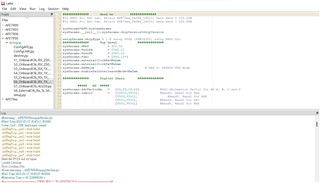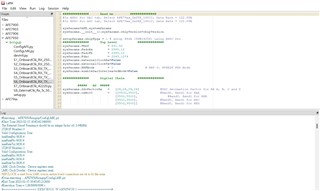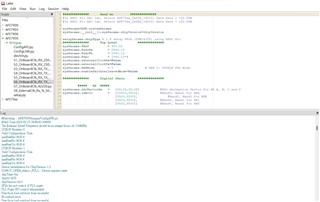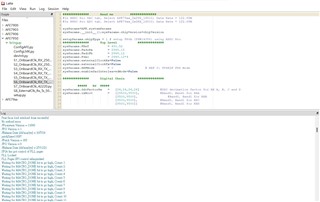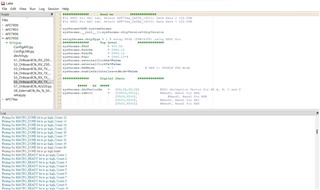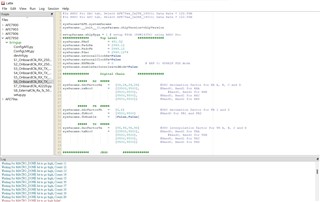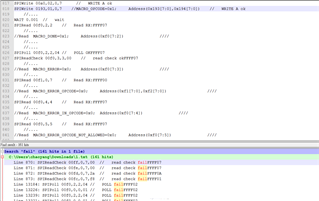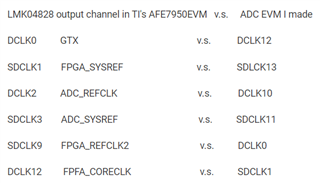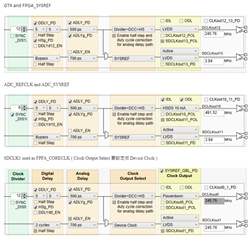Other Parts Discussed in Thread: AFE7950, , LMK04828
I made a ADC EVM ( AFE7950 ) similar to AFE7950EVM
The difference is below:
LMK04828 output channel in TI's AFE7950EVM v.s. ADC EVM I made
DCLK0 GTX v.s. DCLK12
SDCLK1 FPGA_SYSREF v.s. SDLCK13
DCLK2 ADC_REFCLK v.s. DCLK10
SDCLK3 ADC_SYSREF v.s. SDCLK11
SDCLK9 FPGA_REFCLK2 v.s. DCLK0
DCLK12 FPFA_CORECLK v.s. SDCLK1
p.s. The rest is the same including TX, RX, SYNC.....
Here's my question: How can I modify the software latte so that the LMK04828 has the correct output
p.s. I tried to modify LMK output according to the E2E forum article
I found that it can only modify the LMK when I change the parameter in the LMK Clock Divider.
But once I run the script such as S1_OnboardCLK_RX_250M_TX_FB_500M.py
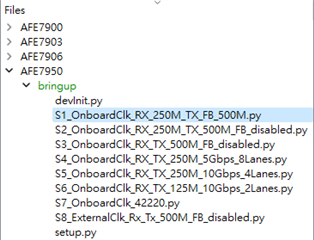
the LMK reset to previous setting so the ADC can't find the REFCLK !!
Pls help~ Thanks~




